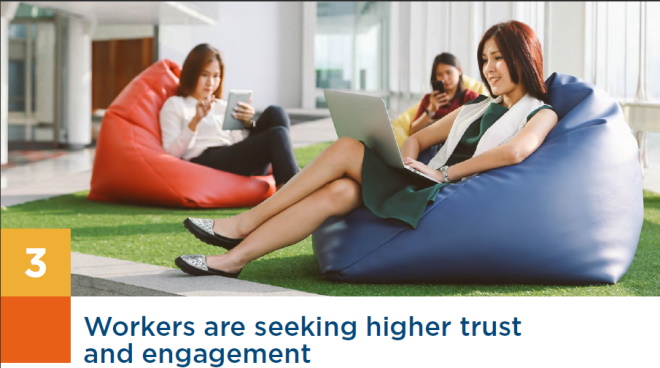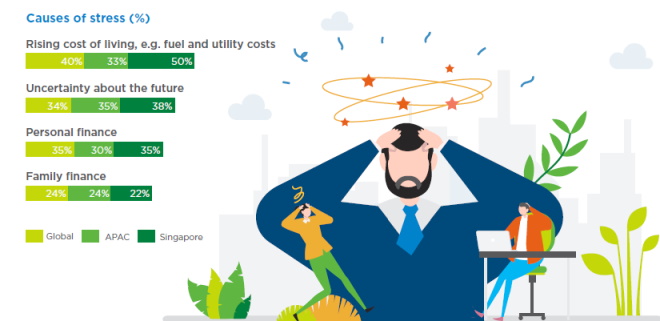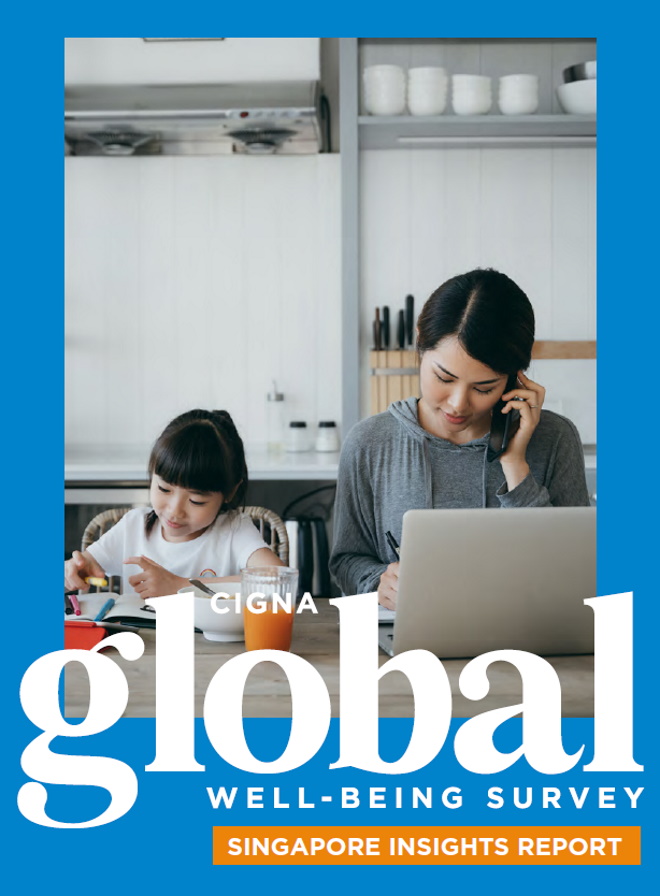
The Gen XY Lifestyle
Singaporeans are facing significant levels of stress
Cigna Singapore ‘Stressed in Singapore – Employer Opportunity’ report shows rising cost of living, uncertainty about the future and hybrid work are inflicting significant levels of stress.
Cigna Singapore – a health service provider – found in their 360 Well-Being report, titled Stressed in Singapore – Employer Opportunity, that in Singapore, 86 percent of adults are stressed, well above the global average of 82 percent.
In Singapore, half of the respondents reported the rising cost-of-living as the top driver of stress in Singapore. Gen Z respondents are the most stressed (95 percent) and are the most emotionally impacted by stress, with over half saying they became more emotional or depressed.

The hybrid work model is causing higher levels of stress in some working adults
The hybrid work model was designed to offer flexibility and work-life balance.
However, the Cigna report found that those applying the hybrid model are most likely to feel stressed (94 percent) and work outside normal hours at least once a week (90 percent).
Instead, there are more virtual meetings that lead to virtual overload or fatigue. Respondents ranked measures to tackle this issue among the top five well-being measures they would like to have at work.
Singapore remains one of the most expensive cities to live in both regionally and globally. Recent economic trends have only exacerbated stress levels among adults, especially the younger generation. Employers must recognise that stress impacts the individual, their families, friends and the organisations and colleagues they work with, and offer well-being support that better match employees’ expectations, or risk losing productivity and talent.
Raymond Ng, CEO and Country Manager, Cigna Singapore
At the moment, based on the report, only 8 percent of companies in Singapore currently provide such support, pointing out a clear need for employers to do more if they hope to maintain a satisfied and healthy workforce.
Employees are shifting gears in their careers to meet their priorities
Work and well-being factors have prompted employees to focus on meeting their lifestyle priorities. This behaviour is contributing to the trend known as the “Great Resignation”.
People are increasingly valuing time over money – almost 3 in 5 (57 percent) of people in Singapore are happy to take a less well-paid job for more time for themselves, much higher than the Asia Pacific (49 percent) and global (43 percent) average.
In Singapore, 35 percent of respondents have changed jobs in the past year and 34 percent are looking to switch in the next 12 months.
There is a gap between what employees want from their companies and what they are currently getting.
Flexible working arrangements and flexible time-off are the top well-being-related reasons that employees may prefer one employer over another, followed by having a healthcare plan that provides medical coverage, advice and personal support during and after a complex condition. While more than 2 in 5 (43 percent) Singapore workers claim that their working location or hours are flexible, flexible time-off is less common (27 percent). Only 1 in 5 (20 percent) claim that they have a comprehensive healthcare plan from their employers – much lower than the regional average (27 percent).
Our findings show us that hybrid work comes with both pros and cons. While many employees in Singapore desire the flexibility of hybrid work, they are also struggling with increased workload, virtual fatigue, and reduced interaction with co-workers. The solution to this is not only in finding the most effective split or schedule of remote and in-office working, but understanding what employees need to help them combat stress and burnout as well as improving engagement with their work and colleagues.
Larisa Beckhouse, Chief Marketing Officer for APAC and Head of Insights International Markets at Cigna

Images credit to Cigna Singapore.









